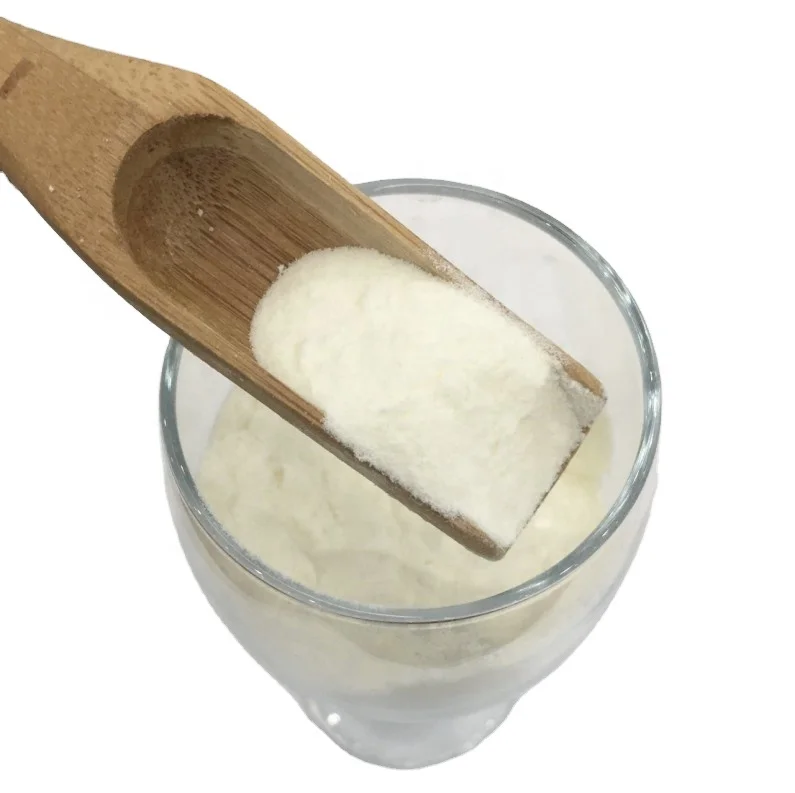Organic Peptone Powder


Related products
- High production capacity, sufficient inventory
- We support customized services.
- One-stop service to meet your needs.
One of the most important components of my work is organic peptone powder, a key ingredient in many microbiological applications. Over the years, I have learned a lot about the benefits of using organic peptone powder, how it is made, and how to ensure its quality. In this article, I will share my knowledge with you, so you can make informed decisions when choosing organic peptone powder for your research.
Get A Quote
Product Description
| ITEM | STANDARD | RESULTS |
| Appearance | Yellow powder | Conform |
| Colour in sloution | Colourless | Conform |
| Moisture | ≤6.0% | 5.5% |
| Solubility | 98% Min | 99.1% |
| Sulphate Ash | ≤0.6% | 0.2% |
| PH (5% solution) | 4.0-6.0 | 5.0 |
| Fatness % | ≤5% | Conforms |
| Arsenic | ≤5ppm | Conform |
| Lead | ≤5ppm | Conform |
| Sulfur Dioxide | ≤100ppm | Conform |
| Total Plate Count | ≤3000cfu/g | Conform |
| E.coli (per100g) | ≤30 max | Conform |
| Pathogen | Negative | Negative |
How is Organic Peptone Powder Made?
Organic peptone powder is made by enzymatic digestion of animal or plant proteins. This process breaks down the proteins into smaller peptides and amino acids, which can be used as a nutrient source for microorganisms. The enzymatic digestion is typically done using pancreatic enzymes, such as trypsin or pepsin, or using microbial enzymes, such as papain or bromelain.
The quality of the organic peptone powder depends on the source and quality of the raw materials, as well as the manufacturing process. To ensure the highest quality, organic peptone powder should be made from high-quality, non-GMO, and pesticide-free raw materials, using a controlled and standardized manufacturing process.
Benefits of Using Organic Peptone Powder
Organic peptone powder has many benefits for microbiological applications. It is a rich source of nutrients for microorganisms, providing a balanced mix of amino acids, peptides, and other growth factors. This makes it an ideal ingredient for the cultivation of a wide range of microorganisms, including bacteria, yeast, and fungi.
In addition to being a nutrient source, organic peptone powder also has other benefits. It can be used as a source of enzymes, which can be used in various biochemical assays. It can also be used as a source of immunoglobulins, which can be used in immunological assays. Overall, organic peptone powder is a versatile and valuable ingredient for microbiological research.
Different Applications of Organic Peptone Powder
Organic peptone powder has many different applications in microbiology. It is commonly used as a nutrient source in bacterial culture media, yeast culture media, and fungal culture media. It can also be used as a supplement in selective and differential media, to enhance the growth or differentiation of specific microorganisms.
Organic peptone powder can also be used in biochemical assays, such as enzyme assays, or in immunological assays, such as ELISA or Western blotting. In addition, it can be used in fermentation processes, to produce various bioproducts, such as enzymes, antibiotics, or biofuels.
The versatility of organic peptone powder makes it a valuable ingredient in many different fields, including biotechnology, pharmaceuticals, cosmetics, and food industries.
How to Use Organic Peptone Powder in Microbiology
Organic peptone powder is typically used as a supplement in culture media, at a concentration of 0.1-5% (w/v). The exact concentration depends on the type of microorganism and the specific growth requirements. It is important to use a high-quality organic peptone powder, to ensure consistent and reproducible results.
Organic peptone powder should be dissolved in water or buffer before adding it to the culture media. It is important to stir the solution well, to ensure even distribution of the peptone powder. The pH of the solution should be adjusted to the desired level, using an appropriate buffer. The solution can then be sterilized by autoclaving or filtration, depending on the specific requirements of the experiment.
Quality Standards for Organic Peptone Powder
To ensure the highest quality of organic peptone powder, it is important to choose a supplier that adheres to strict quality standards. The supplier should use high-quality, non-GMO, and pesticide-free raw materials, and should have a controlled and standardized manufacturing process. The supplier should also provide a certificate of analysis (COA), which includes information on the composition, purity, and quality of the organic peptone powder.
In addition, the organic peptone powder should be tested for performance in microbiological applications, to ensure that it meets the specific requirements of the experiment. This can be done by testing the growth of specific microorganisms in culture media supplemented with the organic peptone powder.





